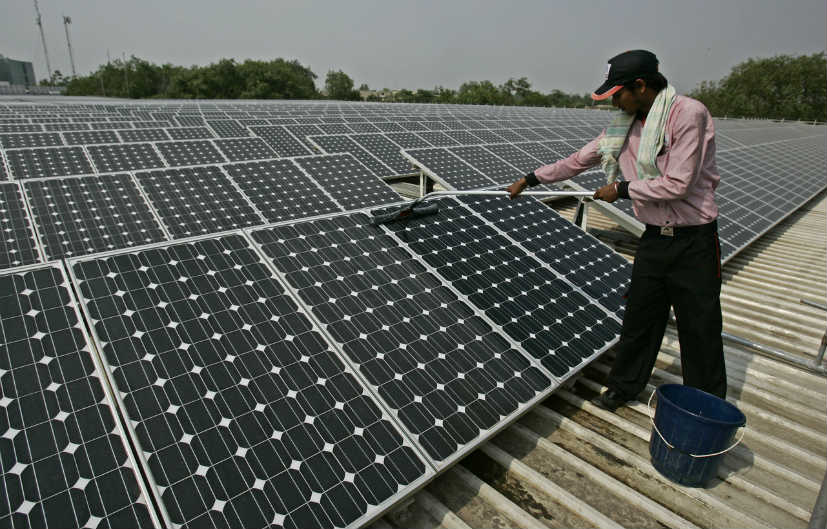India has become the leading producer of solar energy at the cheapest cost globally, beating neighbour China and other European countries.
According to a report released by the International Renewable Energy Agency (IRENA) titled ‘Renewable Power Generation Costs in 2018’, the cost of setting up solar PV projects in India has dropped the fastest – by about 80 per cent in India – when compared to China, Japan, US, and other European countries.
The analysis was done by taking into consideration eight major markets including China, France, Germany, India, Italy, Japan, UK, and the US and the time period of 2010-2018.
While the global average cost of installing utility-scale solar PV projects was $1210/kW, India bagged the cheapest solar energy producer title by doing it at a low cost of $793/kW in 2018.
China, which is still the largest producer of solar energy, has an average solar energy production cost of $879/kW.
In 2018, 94 Gigawatt of new solar PV capacity was added globally which accounts for 55 per cent of the total new renewable power generation capacity additions. China leads the way with 44 Gigawatt while India sits second in the list with nine Gigawatt.
According to another report by the Institute for Energy Economics and Financial Analysis (IEEFA), half of the world’s ten largest solar plants under construction are currently in India. China’s 1,547 megawatt (MW) Tengger Desert Solar Park is the world’s biggest.
The IEEFA report hails India for pioneering the concept of the ultra mega power plant (UMPP) in a single solar industrial park.
The Mint reported that India aims to set up 500 gigawatts (GW) of renewable energy capacity by 2030.
With India now the cheapest solar energy producer, India’s coal-based power plants are taking a hit.

